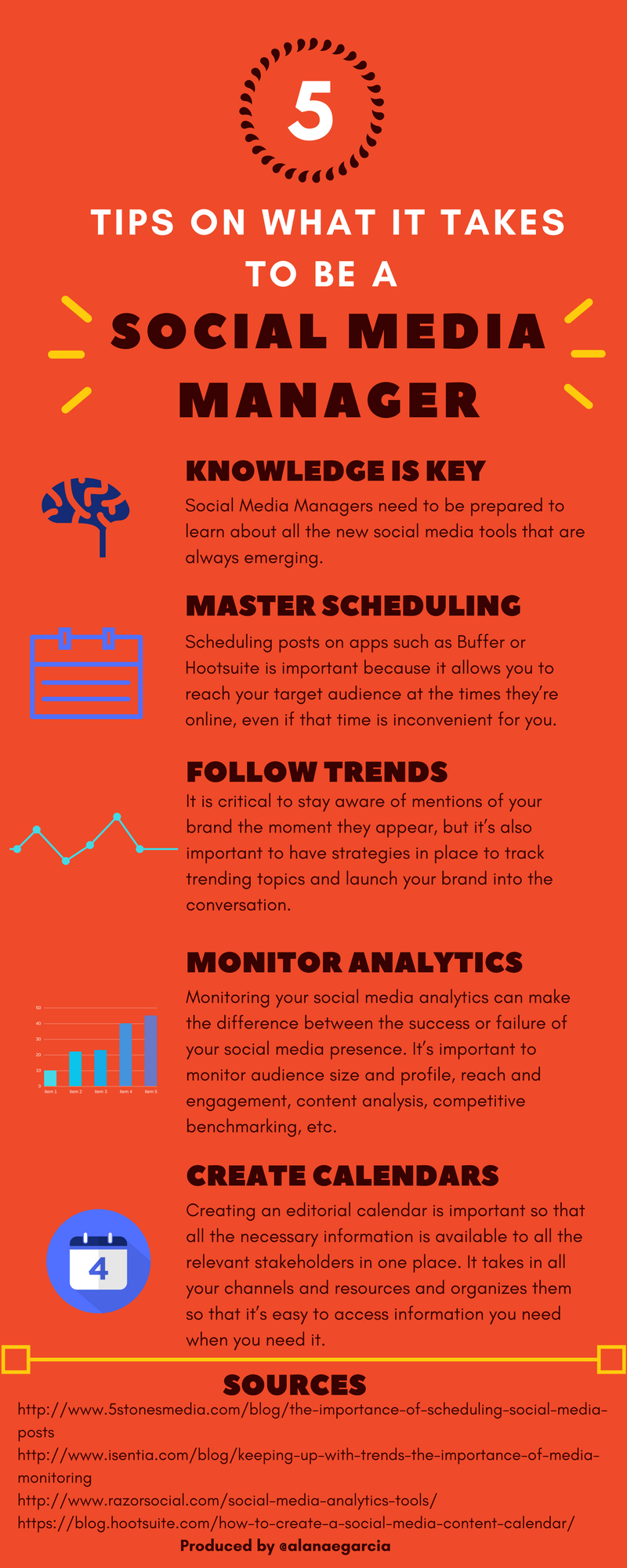To become a social media manager, gain experience with social media platforms and develop strong content creation skills. Obtain a relevant degree or certification.
A social media manager oversees a brand’s online presence, engaging with audiences and crafting content. This role demands creativity, strategic thinking, and a deep understanding of various social media platforms. Social media managers need to stay updated with trends and algorithms.
They often analyze data to optimize campaigns and achieve business goals. Building a portfolio through internships or freelance work can be beneficial. Networking with industry professionals and continuously learning about digital marketing also helps. With dedication and the right skill set, you can excel as a social media manager.
Introduction To Social Media Management
Social media management is essential in today’s digital world. Businesses need strong online presence. Social Media Managers help achieve this. They manage social media accounts. They create content, engage with users, and analyze performance. This role is both challenging and rewarding.
Role Of A Social Media Manager
A Social Media Manager wears many hats. They create and schedule posts. They respond to comments and messages. They monitor trends and analytics. They also develop strategies to grow the audience. Here are some key duties:
- Content creation and curation
- Community engagement
- Performance analysis
- Strategy development
- Brand monitoring
These tasks help businesses stay relevant. They also help in building a loyal customer base.
Importance Of Social Media In Business
Social media is crucial for business success. It offers direct interaction with customers. It helps in brand awareness and customer loyalty. Here are some benefits:
| Benefit | Description |
|---|---|
| Increased Exposure | Reaches a wider audience |
| Customer Engagement | Direct interaction with users |
| Cost-Effective | Lower marketing costs |
| Market Insights | Understand customer preferences |
Social media provides valuable data. Businesses can use this data to improve products and services. This makes social media indispensable for modern businesses.

Credit: www.geeksforgeeks.org
Skills And Qualifications
Becoming a social media manager requires a unique blend of skills and qualifications. This role demands creativity, strategic thinking, and technical know-how. Let’s break down the essential skills, educational background, and certifications needed to excel in this field.
Essential Skills
- Communication Skills: Social media managers must write clearly and engagingly.
- Creativity: Generate fresh and compelling content ideas.
- Analytical Skills: Use data to measure performance and improve strategies.
- Customer Service: Respond to comments and messages professionally.
- Time Management: Handle multiple tasks and meet deadlines efficiently.
Educational Background
A degree in a related field can be beneficial. Here are some common educational backgrounds:
| Degree | Related Fields |
|---|---|
| Bachelor’s Degree | Marketing, Communications, Public Relations |
| Associate Degree | Business, Journalism, Media Studies |
Certifications And Courses
Online certifications can enhance your skills and resume. Consider these courses:
- HubSpot Social Media Certification: Covers social media strategies and tools.
- Google Analytics Certification: Teaches how to analyze web traffic and social media performance.
- Facebook Blueprint Certification: Focuses on advertising on Facebook and Instagram.
These courses provide valuable knowledge and demonstrate your commitment to the field.
Building A Strong Online Presence
Gaining practical experience is crucial for becoming a successful social media manager. Practical experience helps you understand the real-world challenges of managing social media. Here are some effective ways to gain practical experience:
Internships And Volunteering
Internships and volunteering are great ways to gain hands-on experience. Many companies offer internships for budding social media managers. These internships allow you to work under experienced professionals. You learn how to create content, engage with followers, and analyze metrics.
Volunteering is another excellent opportunity. Non-profits often need help with their social media. Volunteering lets you apply your skills and build your portfolio. You get to manage real accounts and see the impact of your work.
Freelance Opportunities
Freelancing offers flexibility and diverse experiences. You can work with different clients and industries. This variety helps you develop a versatile skill set. Start by offering your services on freelancing platforms. Create profiles on sites like Upwork, Fiverr, and Freelancer. Look for small projects to build your reputation.
Freelancing also allows you to set your own rates. This can be a great way to earn while learning. Each new project is a chance to improve and learn.
Building A Portfolio
A strong portfolio is essential for showcasing your skills. Your portfolio should include examples of your best work. Include screenshots, links, and case studies. Highlight your achievements and the impact of your work.
Use a variety of formats to showcase your skills. Include blog posts, social media campaigns, and graphics. The more diverse your portfolio, the better. Potential clients want to see your range of abilities.
Here is a simple table to organize your portfolio content:
| Type of Content | Example | Impact |
|---|---|---|
| Blog Post | Link to Blog | Increased traffic by 20% |
| Social Media Campaign | Link to Campaign | Gained 500 new followers |
| Graphic Design | Link to Design | Boosted engagement by 15% |
Building a strong portfolio takes time. Keep updating it with new examples. Show your growth and improvements over time.
Gaining Practical Experience
Becoming a successful Social Media Manager requires more than just technical skills. Networking and industry connections are key to growing in this field. Building relationships with industry professionals can open doors to new opportunities. Learn how to expand your network effectively.
Joining Professional Groups
Professional groups offer valuable resources and connections. Here are some benefits of joining these groups:
- Access to exclusive industry insights
- Opportunities to collaborate on projects
- Learning from experienced professionals
Consider joining these popular groups:
| Group Name | Platform |
|---|---|
| Social Media Examiner Society | |
| Digital Marketing Professionals |
Attending Industry Events
Industry events are perfect for meeting experts and learning trends. Attend events like:
- Social Media Marketing World
- Content Marketing Conference
- VidCon
These events offer:
- Workshops and training sessions
- Networking opportunities
- Exposure to the latest tools and strategies
Connecting With Influencers
Influencers can boost your career. Here’s how to connect:
- Follow them on social media
- Engage with their content
- Send personalized messages
Engagement tips:
- Comment on their posts
- Share their content with your network
- Participate in their live sessions
Building relationships with influencers can lead to:
- Collaborative projects
- Mentorship opportunities
- Increased visibility in the industry
Networking And Industry Connections
As a social media manager, staying updated with trends is vital. Trends help you understand what is popular now. This knowledge keeps your content fresh and engaging. Here are some effective ways to stay updated.
Following Industry Blogs
Industry blogs are a goldmine of information. They offer insights, tips, and the latest news. Follow blogs from reputable sources. Subscribe to newsletters for regular updates. Reading blogs daily keeps you informed.
- Social Media Examiner
- HubSpot Blog
- Buffer Blog
Participating In Webinars
Webinars are live online events. Experts share their knowledge and experience. They cover various topics, including new tools and strategies. Participate in webinars regularly. They offer real-time interaction and valuable insights.
- Register for free webinars
- Take notes during sessions
- Ask questions to clarify doubts
Continuing Education
Education does not stop after school. Take courses to improve your skills. Online platforms offer many courses. Choose topics related to social media management. Learn about new tools and techniques.
| Platform | Course |
|---|---|
| Coursera | Social Media Marketing Specialization |
| Udemy | Social Media Marketing Mastery |
| LinkedIn Learning | Social Media Marketing Foundations |
Keep learning to stay ahead. Staying updated ensures you deliver the best results.
Staying Updated With Trends
Landing a job as a Social Media Manager requires effective job search strategies. This section will guide you through crafting a standout resume, preparing for interviews, and utilizing job boards. These steps will help you secure your dream job in social media.
Crafting A Standout Resume
Your resume is your first impression. It needs to stand out. Highlight your social media management skills and achievements. Use bullet points for clarity:
- Managed social media accounts for a brand with 50,000 followers.
- Increased engagement rates by 25% through targeted campaigns.
- Created content that went viral, gaining 10,000 shares.
Include keywords like content creation, analytics, and campaign management. Tailor your resume to each job application.
Preparing For Interviews
Interviews can be daunting. Prepare by researching common questions. Some might include:
- How do you handle negative comments on social media?
- What tools do you use for social media analytics?
- Can you describe a successful campaign you managed?
Practice your answers. Be ready to discuss your experience and skills confidently.
Utilizing Job Boards
Job boards are essential for your search. They offer many opportunities. Some popular job boards include:
| Job Board | Description |
|---|---|
| Professional networking and job listings. | |
| Indeed | Comprehensive job search engine. |
| Glassdoor | Company reviews and job listings. |
Set up job alerts. This ensures you don’t miss new opportunities. Tailor your profile on these platforms to reflect your social media expertise.
Job Search Strategies
As a Social Media Manager, advancing your career is crucial. It involves setting clear goals, seeking guidance, and exploring specializations. This can help you stand out in a competitive field. Let’s explore each aspect in detail.
Setting Career Goals
Setting clear career goals is vital. It provides direction and purpose. Start with short-term goals. These can be gaining certifications or learning new tools. Long-term goals might include becoming a social media director. Write down your goals and review them regularly. This keeps you focused and motivated.
Seeking Mentorship
Mentorship is a powerful tool for career growth. A mentor provides guidance and advice. They share experiences and help you avoid mistakes. Seek mentors in your industry. They can be senior colleagues or industry experts. Join professional groups and attend networking events. This increases your chances of finding a good mentor.
Exploring Specializations
Social media management has many specializations. These can enhance your skills and marketability. Consider specializations like content creation, analytics, or paid advertising. Each specialization offers unique opportunities. Choose one that aligns with your interests and career goals. Here is a table to help you understand different specializations:
| Specialization | Description |
|---|---|
| Content Creation | Developing engaging content for social media platforms. |
| Analytics | Analyzing social media metrics to improve strategies. |
| Paid Advertising | Creating and managing paid ad campaigns. |

Credit: later.com

Credit: medium.com
Frequently Asked Questions
What Qualifications Do You Need To Be A Social Media Manager?
A social media manager typically needs a bachelor’s degree in marketing, communications, or a related field. Strong skills in content creation, SEO, analytics, and social media platforms are essential. Experience in digital marketing or internships can also be beneficial.
How Do I Become A Social Media Manager With No Experience?
Start by learning social media marketing basics through online courses. Build your personal brand on platforms. Volunteer for small businesses. Network with industry professionals. Create a portfolio showcasing your skills.
Can I Be A Social Media Manager Without A Degree?
Yes, you can be a social media manager without a degree. Skills and experience matter more in this field.
What Qualifies A Social Media Manager?
A social media manager needs skills in content creation, community engagement, analytics, and strategy development.
Conclusion
Becoming a social media manager requires dedication, creativity, and strategic thinking. Start by gaining relevant skills and experience. Network with industry professionals and stay updated with trends. With persistence and passion, you can build a successful career in social media management.
Keep learning and adapting to thrive in this dynamic field.